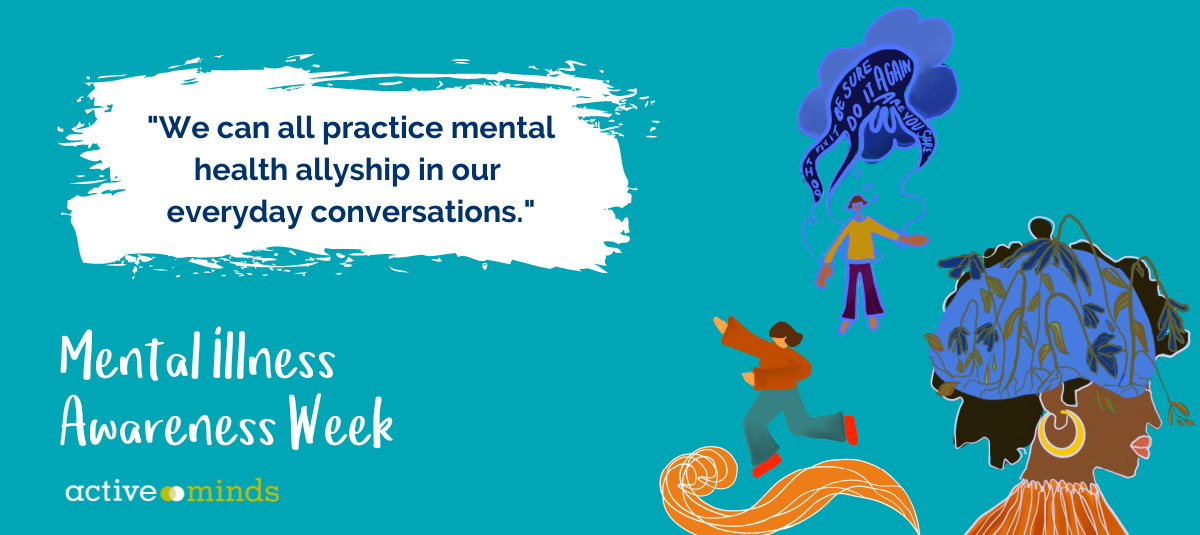As we kick off Mental Illness Awareness Week, you may be hearing more about mental health on social media, in the news, and among your friends and family, including various types of mental illnesses. This can unfortunately often include some of the many misconceptions related to mental health that persist in our society. As we continue to change the culture around mental health, it is important to unpack and debunk myths about mental health so that everyone feels comfortable and able to share their stories, seek help, and receive treatment when needed. Here are three common myths I’ve noticed when it comes to mental illness, and why they’re incorrect:
Myth #1: Struggling with your mental health is uncommon.
Mental illnesses are extremely prevalent in the United States as about one in five U.S. adults live with a mental illness (that’s about 53 million people!). The most common mental illnesses are anxiety disorders, depression, and post-traumatic stress disorder (PTSD), which make up about 30% of all mental illness diagnoses in the country. This myth is especially important to debunk to remind everyone that you are not alone! We are seeing progress – since the pandemic, there has been more transparency surrounding mental health, as more people have come forward with their struggles. If you or someone you know is struggling with their mental health, please seek help.
Myth #2: I don’t need to see a therapist if I have friends.
Sometimes, people assume that therapy is for the lonely or those who don’t have a support system. They might think it is just easier to talk to their friends when they’re having a rough day. While having a support system is very important, there is a big difference between having a conversation with a professional and speaking informally with friends. Therapists can use their expertise and training to address issues that not everyone can help with. It can also be difficult sometimes for people to fully open up with their close friends. Seeing a therapist provides necessary understanding from a different perspective while keeping the conversation confidential.
Myth #3: People with mental illnesses are violent.
Those living with a mental illness are no more likely to be violent than any other person. This myth frequently pops up due to the exaggeration in the media that occurs when a small minority of people with a mental illness act violently towards the general public. When individuals with a significant mental illness are appropriately treated, they do not pose any risk of violence over society. In fact, people with mental illness are more likely to be victims of a crime than the perpetrator. The idea that those who are struggling with their mental health are more likely to be violent is dangerous, especially for BIPOC (Black, Indigenous, and People of Color) individuals who may face police violence in response to mental health crises.
It’s important to debunk these myths because these misconceptions can be dangerous for people living with a mental illness. Being exposed to these myths and seeing the pain they can cause has empowered me to educate my peers, friends, and family so they can learn the truth surrounding mental illnesses. The world needs to understand that it’s okay to talk about mental health, and it should be talked about every day. The only way for mental illnesses to be taken more seriously is to have factual and transparent conversations. So, the next time you come across someone claiming one of the myths above to be true, take a moment to call them in and share relevant information and resources. We can all practice mental health allyship in our everyday conversations.




